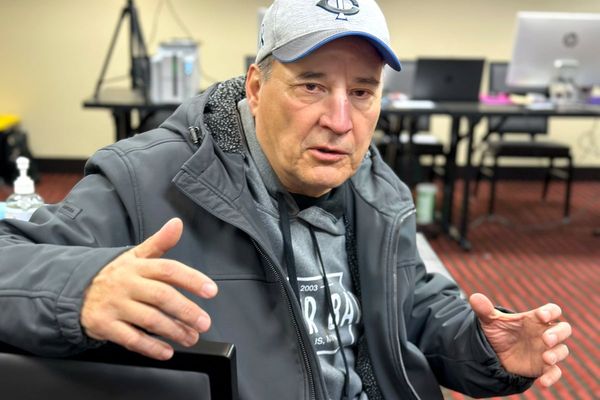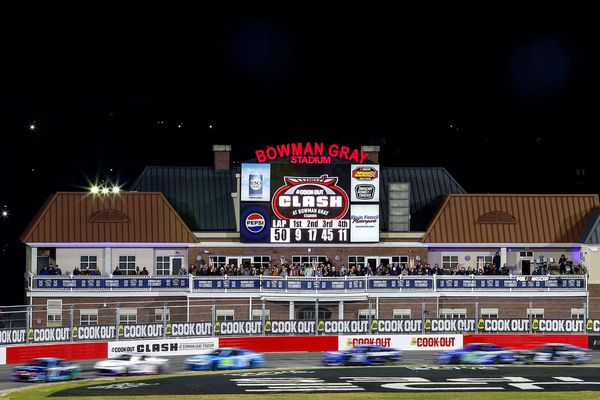Eid-al Fitr marks the end of the Islamic holy month of Ramadan, where many Muslims around the world abstain from food and water during daylight hours.
The word Eid means "feast" or "festival" in Arabic and is one of the most significant events on the Islamic lunar calendar. Eid-al Fitr celebrates the breaking of the fast after Ramadan ends.
Family, friends and the wider community come together to share in the celebration, often marked by morning prayers and delicious food.
For the Gippsland Muslim community, Eid-al-Fitr is a significant time to unite as a community, no matter what cultural background each Muslim may be from.
Nada Ogunsina, a Traralgon-based educator and practising Muslim, says Eid is a special time to connect with the community, as Muslims from all over the region come together as one.
"Eid is a time where I feel like we are all joined together as one Ummah (nation) and that is really how it is supposed to be," the 24-year-old said.
"It's exciting to see different people from different cultures come together, knowing that we are here as Muslims for the same reason."
Living as a Muslim in Gippsland
Ms Ogunsina, who grew up in Perth and is Lebanese-Australian, moved to Gippsland a year ago with her husband. It is her second Eid in Gippsland.
Coming into an area where Muslims are a smaller community in comparison to Perth or Lebanon, she said it can be difficult to adjust.
"In Lebanon, during Eid it's usually a three-day holiday and many families stay up all night cooking not just for their own families but also people visiting their homes," she said.
"Lebanese food is a very Mediterranean sort of diet and we have all sorts of Lebanese food for Eid breakfast especially.
"I think it can be hard adjusting in Gippsland because being here is very different even to Melbourne for example where you can walk down the street and find Lebanese food or ingredients easily.
"It was a little bit difficult at first because I had to drive two-and-a-half hours away to get Lebanese food which is not always ideal."
Ms Ogunsina, who last visited Lebanon in 2015, said growing up in Perth helped her adjust to feeling comfortable wearing the hijab in Gippsland.
"I found living in Gippsland as a hijab-wearing Muslim woman quite similar to Perth in the sense that not every second person you see is going to look like you and speak like you," she said.
"Most people I've come across here are quite curious and understanding."
For Ms Ogunsina, having conversations with colleagues and locals has also helped bridge misunderstandings about Eid and Ramadan.
"Although some people may not agree with why we fast, I feel it's important to explain to those who are curious that Ramadan is not just about not eating food or drinking water," she said.
"Fasting is also about refraining from bad deeds and it's an entire spiritual month.
"For Eid, I try not to place too much emphasis on the food as amazing as it is. We want to maintain that spiritual connection that we've built during Ramadan."
Where culture and faith collide
Aisha Alim is an Australian woman who chose to become Muslim in 2017.
She runs her own business facilitating women's programs, is a life coach and author, and is an active member in various communities around Gippsland.
While Eid is a significant time for Ms Alim religiously, it can also be isolating.
"Eid's probably a little bit different for me than most Muslims in the sense that I am breaking tradition because of the way I was brought up for over 40 years," she said.
"Festivals such as Christmas and Easter were embedded in me, so celebrating Eid is still a relatively new experience and all that it entails.
"People need to understand that religion and culture can be quite separate from each other."
Ms Alim, who is a member of the United Muslim Sisters of Latrobe Valley, says celebrating Eid is a different time for her in comparison to many other Muslims as she is an Australian who became Muslim.
"Some of the challenges from my perspective is that I don't have a family to celebrate Eid with," she said.
"We need to start recognising that it's not just certain cultures who celebrate Eid, we also have people who are not born into the Muslim faith and it can be difficult for us to feel included."
Transport and places to worship around Gippsland can also be hard to find because of the regional locality.
"I feel the challenges of being a Muslim in a rural area in comparison to the city are amplified because of the lack of mosques in our region," she said.
"I think it would be a great initiative to help bring the community together on events such as Eid because we are always struggling to find a meeting place.
"Transport can also be a challenge because small pockets of Muslims are spread all throughout towns in Gippsland, so having that accessibility available to everyone to gather in one place can be difficult."
Growing understanding of Eid in Gippsland
For Yumna Ahmed, who is a Pakistani-Australian based in the town of Churchill, Eid is a time when community matters most.
"Eid is a big celebration after Ramadan, kind of like Christmas to put it in relatable terms here," Ms Ahmed said.
"It's about connection, about celebration, about bringing people together."
The mental health worker, who moved to Gippsland when she was 16 years old from Pakistan, says explaining what Eid means can be difficult.
"In Pakistan, Eid is a whole four-day event which begins the day before Eid," she said.
"People over there connect with their families, there is a lot of shopping and the night before Eid women usually get henna tattoos on their hands.
"In Australia, it can be difficult getting time off for Eid and sometimes you have to work through your holidays. To explain the concept and its significance to us can be difficult."
Ms Ahmed also said while it was difficult at first to explain Eid in Gippsland to colleagues and friends, there is now a growing understanding in the region and people often wish her Eid Mubarak (happy Eid).
"I think it would surprise people how multicultural Gippsland actually is," she said.
"It's an amazing place with amazing people and I wouldn't want to live anywhere else."







